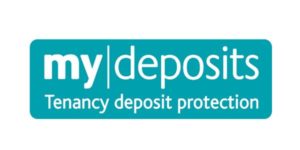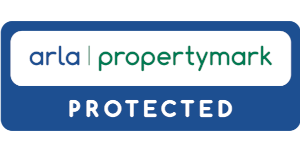In the world of real-estate, things change and circumstances shift in the blink of an eye. In fact, 1 in 12 rental properties that hit the market were “by accident”. Family bereavements, relocations for work or financial changes can lead to the transfer from homeowner to accidental landlord. In this article, we will explore what an accidental landlord is, and provide some tips and tricks on how to navigate the path if you find yourself in this position.
What is an accidental landlord?
An accidental landlord is someone who unexpectedly becomes a property owner with the responsibility of renting it out, either because they have come into possession of a property that was already leased, or there arose a sudden need to find tenants. The accidental landlord status happens not because of plans to become a landlord, but due to unforeseen circumstances or unplanned changes in the person’s life.
Although accidental landlords didn’t actively want this role, they need to adapt, making decisions about finances, lease agreements and property management.
How can you become a landlord by accident?
Becoming a landlord by accident usually occurs after unexpected life events and leads to people owning properties that are or need to be let. Several scenarios may lead to this unintentional role. Here are a few examples:
- Moving in with your partner: Moving in with your partner can result in having a spare property that you decide to take advantage of and rent out.
- Family bereavement: In the event of a death in the family, individuals may inherit a property. Either the choice to either keep the property or being unable to sell it can lead to the unintentional path of becoming a landlord.
- Relocating for work: Job relocations often involve decisions about the existing property. Some people may choose to keep their current residence, anticipating a possible return in the future, especially if the role they are relocating for is temporary or on a set-term contract.
- Divorce or Separation: In the event of divorce or separation, one person may keep the property, which might then be leased out if they decide to move elsewhere.
In each of these situations, the individual is thrust into the role of a landlord without having sought out the responsibilities that come with it.
What do you need to do when you become an accidental landlord?
There are a few steps that you need to take when you first become a landlord to ensure that you’re legal and compliant. So that you don’t find yourself in hot water, we have put together a list of steps to follow.
Sort out your mortgage
You will need to inform your mortgage provider that you are renting out your property. Most standard residential mortgages don’t allow you to let your property, or only allow short-term lettings.
In this case, you will need to switch your mortgage to a buy-to-let mortgage. A buy-to-let mortgage is a type of mortgage specifically designed for individuals who will rent their property out to tenants, rather than using it as their primary residence. You should expect to pay an arrangement fee, and there might be consequences for terminating an ongoing fixed-rate agreement early. Additionally, your new interest rate could be higher than your current one, as buy-to-let interest rates tend to be higher than standard mortgages.
Get landlord insurance
Although landlord insurance isn’t mandatory, it’s highly recommended. Landlord insurance acts as a safety net, designed to protect landlords financially in the case of property damage, liability claims, loss of rental income or tenant-issues.
If your rental property is furnished, you should consider purchasing contents insurance, however if it isn’t, landlord’s building insurance should be sufficient.
If it’s a flat or a leasehold property, obtain permission to let
If your property is a flat or a leasehold house, you will need to gain approval from your freeholder to sublet. This is because the lease agreement typically includes particular rules about renting. So, it’s important to follow the rules and get the freeholder’s approval before renting out the property. This proactive approach helps avoid complications, legal issues, and ensures a smooth subletting process.
Register as a landlord
Depending on your local authority, if you’re in England, you may need to register as a landlord, which involves paying a fee to your local authority. In Northern Ireland, Scotland and Wales, registering as a landlord is a legal requirement.
Carry out landlord safety checks
There are a number of different safety checks that you need to carry out before you can rent out your property. For example, you need to obtain a gas safety certificate and an Electrical Installation Condition Report (EICR), conduct Portable Appliance Testing (PAT testing), and install and test smoke and carbon monoxide alarms.
It is also best practice to get your boiler serviced, and you need to obtain an EPC rating of E or higher. This minimum will change to C or higher from 2025.
Decide how to let your property
There are a number of different routes you can go down when you’re ready to let your property. For example, if you decide to use a letting agent, there are three different levels of service: tenant-find, rent-collection and fully managed.
Some landlords choose to not use a letting agent at all. It’s not a necessity, and hiring a letting agent isn’t right for everyone. That being said though, letting agents can help with certain aspects of the lettings process that accidental landlords may not be familiar with.
A full property management service can be really helpful if you’re unfamiliar with private rental sector legislation, but if you want to be more of a hands-on landlord, you may only want to use a tenant-find service.
Pay tax on your rental income
Just like you would with any other income, landlords have to pay tax on their rental income. You will need to complete a self-assessment declaration every year and include any rent you receive subject to income tax.
There are certain allowable expenses that you are able to deduct from your income to reduce your tax, such as:
- The cost of insurance
- Letting agent and accountant fees
- Maintenance and repairs
How Aspire to Move can help
At Aspire to Move, we have years of experience helping landlords with all aspects of the letting process. Our whole team is fully qualified and up to date with the latest legislation, so we can offer our clients the best advice.
Get in touch with us today and discover how we can help you.



















